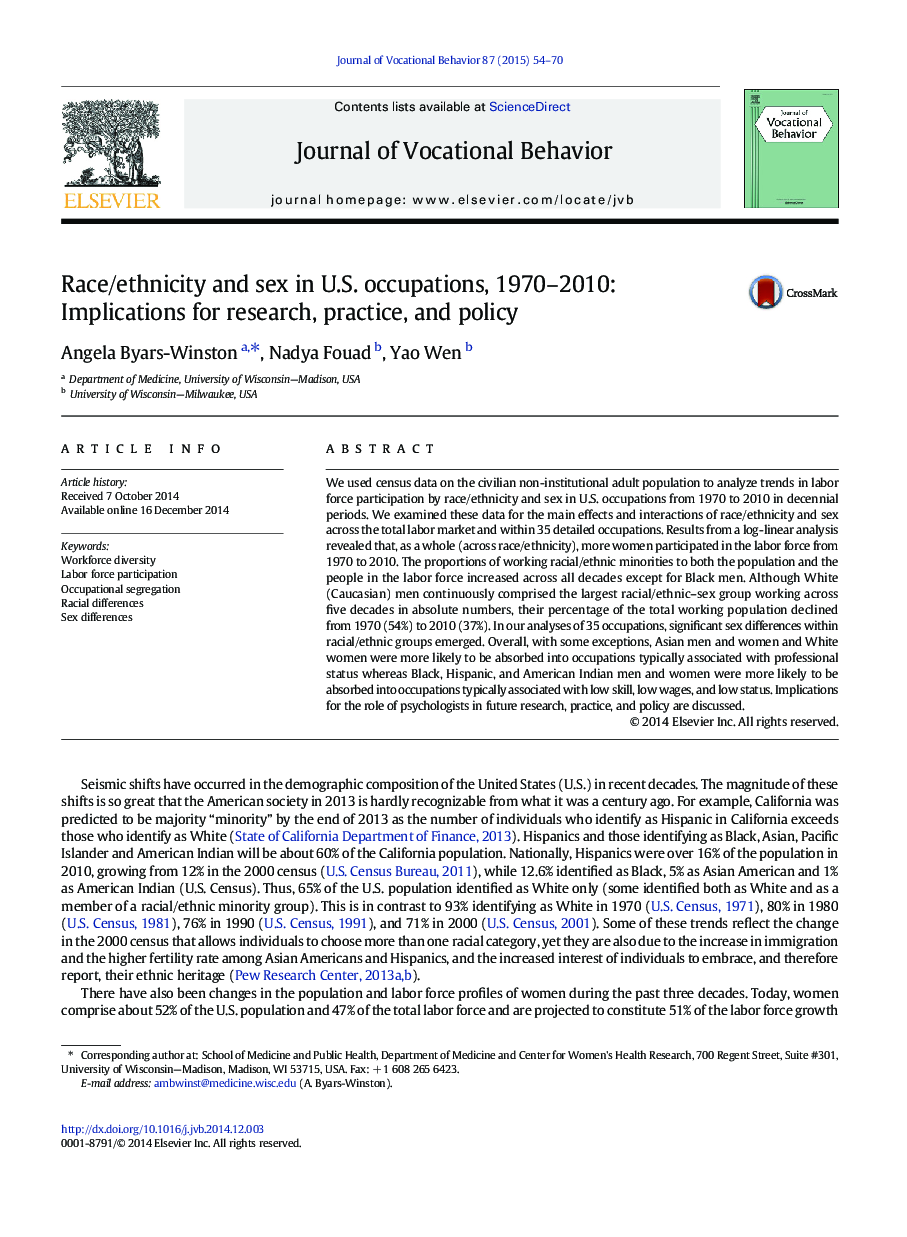| کد مقاله | کد نشریه | سال انتشار | مقاله انگلیسی | نسخه تمام متن |
|---|---|---|---|---|
| 886782 | 1471812 | 2015 | 17 صفحه PDF | دانلود رایگان |

• We examine participation in the labor force and in 35 occupations across 40 years.
• We calculate effect sizes to determine differences by race/ethnic and sex.
• Significant sex differences within racial/ethnic groups emerged.
• Non-Asians and non-Whites had increased participation in health and trade occupations.
• We report implications for research and theory, practice, and policy.
We used census data on the civilian non-institutional adult population to analyze trends in labor force participation by race/ethnicity and sex in U.S. occupations from 1970 to 2010 in decennial periods. We examined these data for the main effects and interactions of race/ethnicity and sex across the total labor market and within 35 detailed occupations. Results from a log-linear analysis revealed that, as a whole (across race/ethnicity), more women participated in the labor force from 1970 to 2010. The proportions of working racial/ethnic minorities to both the population and the people in the labor force increased across all decades except for Black men. Although White (Caucasian) men continuously comprised the largest racial/ethnic–sex group working across five decades in absolute numbers, their percentage of the total working population declined from 1970 (54%) to 2010 (37%). In our analyses of 35 occupations, significant sex differences within racial/ethnic groups emerged. Overall, with some exceptions, Asian men and women and White women were more likely to be absorbed into occupations typically associated with professional status whereas Black, Hispanic, and American Indian men and women were more likely to be absorbed into occupations typically associated with low skill, low wages, and low status. Implications for the role of psychologists in future research, practice, and policy are discussed.
Journal: Journal of Vocational Behavior - Volume 87, April 2015, Pages 54–70